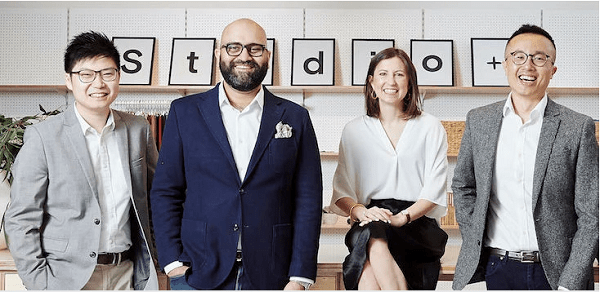Furniture and homewares retailer Brosa has rolled out a new paid parental leave policy for both primary and secondary caregivers, as it strives to further embed flexible and inclusive work practices within the business.
The new policy, which commenced this month, offers 16 weeks paid leave to primary and secondary caregivers in the first 12 months after their child is born or adopted.
The policy does not include superannuation, but also features 10 paid ‘keeping in touch’ days to help employees stay connected to the business.
While many larger employers offer their employees paid parental leave entitlements, it is less common to see smaller businesses and startups to offer extended paid leave.
Speaking to our friends at SmartCompany, Brosa chief operating officer Anna Stockley Davidson says the Brosa leadership team has long wanted to develop a paid parental leave policy and the recent growth in the company’s human resources team gave it the “bandwidth” to implement the change.
The team has been working on developing the policy for the past six months and sees it as an extension of the retailer’s existing policies, which allow all employees — regardless of length of service or type of employment — the opportunity to work flexibly.
Prior to the introduction of the new policy, Brosa employees were able to access the federal government provided paid parental leave, which offers primary caregivers up to 18 weeks of paid leave at the national minimum wage.
A ‘long-term’ investment
Brosa was founded in 2014 and previously raised millions in venture capital funding to grow its vertically-integrated model that combines furniture retailing with technology via an online platform.
The retailer now has showrooms in Melbourne and Sydney as well as its e-commerce store, and more than 75 employees, the majority of which are female and under the age of 40.
Around 40% of the Brosa workforce are already parents, including 80% of the executive team, which includes co-founders David Wei and Ivan Lim.
Stockley Davidson describes the policy as a long-term investment in the Brosa team, and says when you think of it in those terms, “you can very easily get comfortable with the cost investment” of providing additional leave entitlements to staff.
“Taking a long-term or holistic view of where a business is trying to get to needs to encompass the whole person, and needs to include their loved ones and families,” she says.
This focus on inclusivity is why Brosa is extending the paid leave entitlements to secondary care givers as well as primary caregivers, and allowing them to take the leave at any time during the first 12 months with their child.
Stockley Davidson explains it is about “supporting equality in parenting”, while also helping to address the gender imbalance that can occur when secondary caregivers, often men, do not have access to paid parental leave.
And it’s also about having a policy that is “genuinely used and taken advantage of by our team”, says Stockley Davidson.
“Enabling secondary caregivers to use it within the first year actually means so much more flexibility and opportunities for it to be taken up,” she says.
While Stockley Davidson says there has not yet necessarily been demand among the Brosa team for a comprehensive paid parental leave policy, she says the retailer “wanted to be on the leading edge” and adopt best practice for supporting new parents at work.
“It’s about being on the front foot and being a leader,” she says.
“We want to stand out as a great place to work and show our employees we genuinely care about them.”


